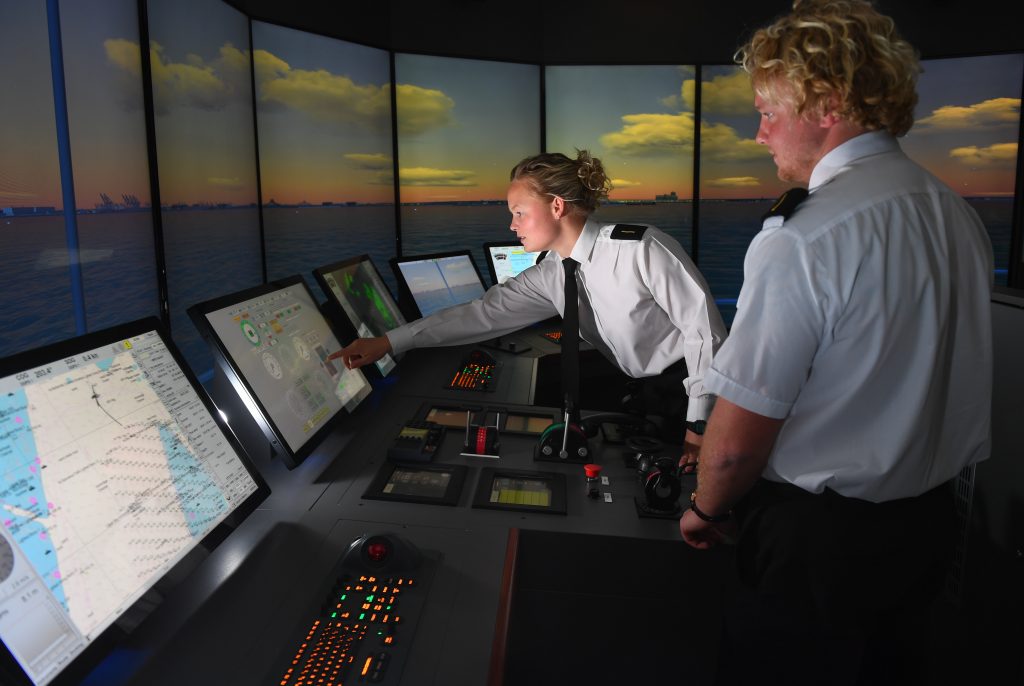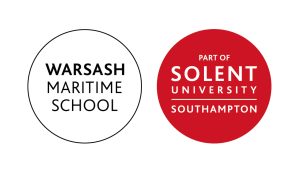Enhanced Marine Engineering Pre-Cadetship – Wales
Enhanced Marine Engineering Pre-Cadetship – Wales
Pearson BTEC L3 Award in Advanced Manufacturing Engineering / City & Guilds L2 Diploma in Performing Engineering Operations
Embark on a unique maritime voyage with the only Pre-Cadetship programme in Wales, designed for learners aiming to pursue a career at sea or in the maritime engineering sector.
Is this course right for me?
This one-year intensive programme is ideal for learners who are interested in a future career at sea and want to develop both technical knowledge and practical maritime skills. By combining marine engineering and maritime studies, the course provides a strong academic foundation alongside hands-on training that reflects real-world maritime practice.
Learners gain industry-relevant skills while developing the discipline, teamwork, and professionalism expected of future maritime officers. The programme is particularly well suited to individuals who enjoy practical learning, problem-solving, and working as part of a team.
As part of the programme, all learners receive a suite of practical maritime qualifications, fully funded by The Reardon Smith Nautical Trust, including:
- Powerboat Level 2 licence
- RYA Short Range VHF Radio Certificate
- RYA Marine Diesel Maintenance qualification
- RYA Sea Survival Training
- Basic Navigation and Seamanship skills
Progression Opportunities
Pre-Cadets are encouraged to begin thinking and acting like trainee Officers. Upon successful completion of the programme, learners can progress through a range of pathways, including sponsored Officer Cadet training programmes at the prestigious Warsash Maritime School (part of Southampton Solent University) or other maritime colleges.
Alternative progression routes include apprenticeships within the local marine engineering industry or further academic study through a Level 3 Diploma (Year 2), equivalent to two A-Levels. This qualification prepares learners for higher-level entry into Maritime College, such as a Foundation Degree.
Officer Cadet Training
Officer Cadet training is fully sponsored by a shipping company. This means all higher education costs are covered, learners do not accumulate student debt, and they receive a wage throughout their training.
The cadetship typically lasts three years and is structured across five stages. Three stages are completed at college, focusing on academic learning and practical tasks, while the remaining two stages take place at sea, where learners gain hands-on experience aboard operational vessels. This integrated approach prepares cadets for their final oral examinations and qualification as certified Officers.
Qualifications on Completion
Learners who complete the full cadetship will graduate with:
• A Bachelor’s Degree with Honours, Foundation Degree, or Higher National Diploma (HND)
• A professional maritime qualification: the Certificate of Competency
Learners interested in this pathway can find out more via Careers At Sea – Start Your Career in the Merchant Navy
What are the entry requirements?
- Five GCSEs at grade C or above (may include one relevant equivalent) to include English Language/First Language Welsh, Mathematics and Science
- Each application is considered on individual merit
- Entry is subject to attending a course meeting or informal interview
Current student - what are the entry requirements?
- Successful completion of relevant Level 2 programme (including skills) and decision from progression board meeting
- GCSE English Language/First Language Welsh at grade C or above
- GCSE Mathematics at grade C or above
What will I learn?
Learners will study two qualifications in one year – a technical award (BTEC Level 3 in Advanced Manufacturing Engineering, equivalent to 1 A-level) and a competence Qualification (Level 2 Diploma in Engineering). A maritime enrichment programme will run alongside the main qualifications.
Learners will be required to undertake five weeks of work experience with a mechanical or marine engineering company usually during half term and Easter holidays. This is coupled with receiving a £200 toolkit to keep for use in the workshops at Pembrokeshire College and in their work placements.
Pearson BTEC L3 Award in Advanced Manufacturing Engineering
Covering maths for engineers, mechanical science, engineering materials and an insight into environmental engineering and sustainability alongside receiving lectures from renewable engineering companies.
Units to be studied include:
- Health and Safety in the Engineering Workplace – Learners will gain an understanding of hazards and risks associated with health, safety and welfare in an engineering workplace, the associated legislation and regulations, and of their roles in complying with the related legal obligations. Learners will be required to undertake full risk assessments and to appreciate the significant risks encountered in the workplace and the measures taken to deal with them. They will study the principles of reporting and recording accidents and incidents, again within a legal context.
- Communications for Engineering Technicians – This unit will give a foundation for employment in a wide range of engineering disciplines (for example manufacturing, maintenance, communications technology), in addition to giving a foundation for further study. It aims to develop learners’ ability to communicate using a diverse range of methods. These include visual methods, such as drawing and sketching, and computer-based methods, such as two-dimensional (2D) computer-aided design (CAD) and graphical illustration packages. It will also develop learners’ ability to write and speak in a framework of technology-based activities, using relevant and accurate technical language appropriate to the task and the audience.
- Mathematics for Engineering Technicians – This unit enables learners to build on knowledge gained at GCSE and use it in a more practical context for their chosen discipline. Learning outcome 1 will develop learners’ knowledge and understanding of algebraic methods, from a look at the use of indices in engineering to the use of the algebraic formula for solving quadratic equations. Learning outcome 2 involves the introduction of the radian as another method of angular measurement, the shape of the trigonometric ratios and the use of standard formulae to solve problems involving surface areas and volumes of regular solids. Learning outcome 3 requires learners to represent statistical data in a variety of ways and calculate the mean, median and mode. Finally, learning outcome 4 is intended as a basic introduction to the arithmetic of elementary calculus.
- Computer-aided Drafting in Engineering – Learners will produce a variety of CAD drawings, from single-part 2D components to complex 3D models. Advanced techniques, such as using pre-prepared symbols to construct circuit diagrams and assembly drawings, will provide opportunities for learners to develop their skills. Learners will investigate the use of CAD in industry, the hardware and software required and the links with other software packages. In doing this, learners will appreciate the advantages of CAD over more conventional methods of drawing production. Finally, learners will generate 3D models, make comparison with 2D CAD drawings and evaluate the impact of this technology on manufacturing companies and their customers.
- Mechanical Principles of Engineering Systems – Learners are introduced to the behaviour of loaded engineering materials and the analysis of a range of static engineering systems. They will gain an understanding of dynamic systems through the application of Newtonian mechanics. Finally, they will deal with the effects of heat transfer, the expansion and compression of gases and the characteristic behaviour of liquids at rest and in motion.
- Properties and Applications of Engineering Materials– In-depth knowledge of the structure and behaviour of engineering materials is vital for anyone who is expected to select or specify them for applications in the engineering industry. This unit will give an understanding of the structures, classifications and properties of materials used in engineering and will enable learners to select materials for different applications. This unit will enable learners to identify and describe the structures of metals, polymers, ceramics and composites and classify them according to their properties. Learners will describe the effects of processing on the behaviour of given materials. Smart materials whose properties can be altered in a controlled fashion through external changes – such as temperature and electric and magnetic fields – are also covered.
C&G L2 Diploma in Performing Engineering Operations
This course will immerse you in performing engineering operations such as CAD, mechanical maintenance and using lathes for turning operations.
Units to be studied include:
- Complying with statutory regulations and organisational safety requirements– This unit covers the skills and knowledge needed to prove the competences required to work safely in an engineering environment. It will prepare the learner for entry into the engineering or manufacturing sectors, creating a progression between education and employment, or it will act as the basis for the development of additional skills and occupational competences in the working environment. It covers carrying out the learner’s work activities in accordance with instructions and by the use of safe working practices and procedures. The learner will be required to comply with all relevant regulations that apply to their area of work, as well as their general responsibilities as defined in relevant legislation, guidelines, policies, procedures and protocols.
- Carrying out engineering activities efficiently and effectively– This unit covers the skills and knowledge needed to prove the competences required to cover a broad range of basic activities that will prepare the learner for entry into the engineering or manufacturing sectors, creating a progression between education and employment, or that will act as a basis for the development of additional skills and occupational competences in the working environment.
- Using and communicating technical information– This unit covers the skills and knowledge needed to prove the competences required to make full use of text, numeric and graphical information, by interpreting and using technical information extracted from a range of documentation such as engineering drawings, technical manuals, technical specifications, reference tables and charts, electronic displays, planning and quality control documentation. This will prepare the learner for entry into the engineering or manufacturing sectors, creating a progression between education and employment, or will act as a basis for the development of additional skills and occupational competences in the working environment.
- Preparing and using lathes for turning operations– This unit covers the skills and knowledge needed to prove the competences required to cover a broad range of basic turning activities that will prepare the learner for entry into the engineering or manufacturing sectors, creating a progression between education and employment, or that will provide a basis for the development of additional skills and occupational competences in the working environment. The turning operations may be carried out on machines such as centre lathes, capstan or turret lathes, automatic or other specific turning machines. The learner will be expected to prepare for the turning activities by obtaining all the necessary information, documentation, tools and equipment required, and to plan how they intend to carry out the required turning activities and the sequence of operations they intend to use.
- Producing mechanical engineering drawings using a CAD system– This unit covers the skills and knowledge needed to prove the competences required to set up and operate a computer aided drawing (CAD) system to produce detailed drawings for mechanical engineering activities. It will prepare the learner for entry into the engineering or manufacturing sectors, creating a progression between education and employment, or it will act as a basis for the development of additional skills and occupational competences in the working environment. The type of drawings produced will include detail component drawings for manufacturing, assembly and sub-assembly drawings, installation drawings, fault location aids such as flow diagrams, and modification drawings.
- Maintaining mechanical devices and equipment– This unit covers the skills and knowledge needed to prove the competences required to cover a broad range of basic mechanical maintenance activities that will prepare the learner for entry into the engineering or manufacturing sectors, creating a progression between education and employment, or that will provide a basis for the development of additional skills and occupational competences in the working environment. The learner will be expected to prepare for the maintenance activities by obtaining all necessary information, documentation, tools and equipment required, and to plan how they intend to carry out the required maintenance activities and the sequence of operations they intend to use.
Enhanced Maritime Studies – Enrichment Programme
Overview
The Enhanced Maritime Studies Enrichment Programme provides learners with an exceptional introduction to the global maritime industry, combining academic study with hands-on training and professional enrichment experiences. Designed for those who aspire to careers at sea or within maritime engineering, this programme develops the practical, technical, and professional skills needed to succeed in this dynamic international sector. Learners will explore marine engineering, navigation, seamanship, maritime law, and safety protocols, alongside a range of specialist training opportunities and field visits to leading maritime institutions and organisations.
Maritime Industry Foundations
Learners begin by gaining a comprehensive understanding of the maritime sector, including the Merchant Navy Code of Conduct, the global shipping industry, and life at sea. They will also study port operations, sea line protection, and the fundamentals of maritime law and international conventions that govern operations worldwide. Dedicated sessions in maritime study skills help learners develop the discipline and focus expected of future seafarers.
Navigation and Seamanship
Core navigation studies cover latitude and longitude, compass bearings, tidal theory, and practical chart work. Learners will use electronic navigation aids, study IRPCS (International Regulations for Preventing Collisions at Sea), and participate in bridge simulator sessions to apply classroom theory in a realistic setting.
Seamanship modules include ship handling, anchoring, berthing, watchkeeping, and man-overboard recovery techniques.
Health, Safety, and Environmental Awareness
Safety is central to the maritime profession. Learners will study the MCA Code of Safe Working Practices for Seafarers and the International Convention for the Safety of Life at Sea (SOLAS). Topics include GMDSS (Global Maritime Distress and Safety System), marine accident investigations, and the role of the International Maritime Organization (IMO). Environmental awareness is strengthened through the study of marine pollution, including the Sea Empress case study at Milford Haven.
Industry Enrichment and Professional Exposure
The enrichment element of the programme provides learners with direct contact to maritime professionals and organisations:
- Maritime Cadetship Sponsorship Pathways – delivered by the Ship Safe Training Group (SSTG)
- Industry Insight Session – led by Carnival Cruises UK, exploring cruise ship operations, engineering pathways, and officer cadet opportunities
- Marine Pilotage and Port Operations – masterclass with a Class 1 Marine Pilot
- Marine Outboard Engine Maintenance – delivered by Rudders Marine Training, focusing on diagnostics, servicing, and fault identification for small craft engines
- Introduction to Maritime Renewables – delivered by ORE Catapult Renewables
Educational visits to key maritime organisations, including:
- HM Coastguard Station, Milford Haven – search and rescue operations
- Port of Milford Haven – Vessel Traffic Services (VTS) and port development
- Milford Haven Port Authority Bridge Simulator
- Warsash Maritime School, Southampton – officer cadet training insight
- West Wales Maritime Museum, Pembroke Dock – maritime heritage, shipbuilding, and regional seafaring history
Professional Training and Certification
Practical training is an integral part of the enrichment programme. Learners will work towards industry-recognised Royal Yachting Association (RYA) and Maritime and Coastguard Agency (MCA) qualifications.
These qualifications provide an excellent foundation for further maritime study, cadetships, or seafaring employment.
Tutorials and Support
Throughout the programme, learners will attend regular tutorials with a Maritime Professional, designed to support academic development, strengthen study skills, and prepare them for future progression into maritime cadetships, apprenticeships, or higher education. Emphasis is placed on teamwork, leadership, and professional conduct, qualities essential for anyone pursuing a career at sea.
Your Route into a Maritime Career
The Enhanced Maritime Studies Enrichment Programme offers a unique opportunity to begin your journey into the maritime industry. Through technical training, professional enrichment, and real-world experiences, learners gain the confidence, competence, and connections needed to progress towards officer cadetships. This includes fully funded university-level study, or direct employment within this vital global sector.
Will I need to study additional English & Maths skills?
You may need to study an additional skills course depending on:
- the course you are taking at College
- what grades you gained in your GCSE Maths and/or English Language
Below to find out what skills course you may be taking at College.
Workbased, progression pathway programmes within the Built Environment Faculty – you will study Essential Skills Wales (ESW) in Application of Number and Communications.
Jobs Growth Wales (JGW+) programme – will be timetabled into literacy and numeracy sessions. To discuss the opportunity of attending a GCSE resit programme, in addition to their JGW+ timetable, please contact skills@pembrokeshire.ac.uk
Life Skills Academy programmes – you will have opportunities to upskill in English and Maths through Wales Essential Skills Toolkit (WEST) / Century or attending Essential Skills classes.
All other courses and those who have progressed through the internal progression route:
Upskilling Destination Programme – an hour and half session a week developing essential research skills, critical thinking, and academic writing techniques, supporting literacy, numeracy, digital literacy and employability skills
A one year GCSE Resit Programme in GCSE Mathematics Intermediate Tier (Welsh or English medium) / GCSE English Language
A one or two year pre-GCSE upskilling course in required subject/s – The priority of this programme (Foundation Maths for Mathematics pathway) is to build fundamental skill and knowledge, to prepare learners for progression onto the one-year, intermediate tier resit programme.
A one year pre-GCSE upskilling course in mathematics – The priority of this programme is to build fundamental skill and knowledge, to prepare learners for progression to the Foundation Maths programme.
Can I do this course in Welsh?
Learners may have the option to complete course assessment/assignments or elements of the course through the medium of Welsh or bilingually. Visit our Welsh Language in the College page to find out what else is available to you.
How will I be assessed?
- Continuous assessment during the course
- Portfolio of evidence
- Workplace evidence
- Practical examination
- Written examination
- Online examination
- Completion of a final major project
What can I do next?
Following successful completion of the Enhanced Maritime programme learners may consider the following;
- Progress to the Level 3 Diploma in Advanced Manufacturing Engineering in year 2
- Apply to Warsash Maritime School to train as an Officer Cadet (Deck/Marine Engineering/Electro Technical pathways) on the Warsash’ Officer Cadet programme.
- Higher Education – HNC/HND/Foundation Degree/Bachelor’s Degree
- Apprenticeships/employment
Do I need to bring/buy any equipment?
- Stationery - you will be told about any specific items before you start the course
- Technical drawing equipment - you will be told about any specific items before you start the course
- Engineering flame retardant coveralls - £35
- Engineering safety boots - £14/£35
- You may be eligible for funding. Find out more on our student finance page
Any costs above are approximate and may change.
Are there any additional costs?
- No tuition fee
- You will need to pay a £80 engineering workshop fee each year before you start the course
- You can rent a locker for £10 per year this will be refunded if the locker remains undamaged and keys are returned
- You may be eligible for funding. Find out more on our student finance page
Any costs above are approximate and may change.
Additional information
| Level: | |
|---|---|
| Mode: | |
| Duration: |
Sports Academy: While on this course you may be able to join our Sports Academy, if you have a talent for sport, find out what we offer on our Sports Academy page.





